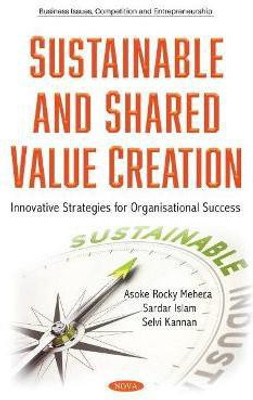Sustainable and Shared Value Creation(English, Paperback, Islam Sardar)
Quick Overview
Product Price Comparison
In a post-Global Financial Crisis (2008) and post-COVID-19 (2020) competitive world, an organisational strategy needs to be promoted for gaining sustained competitive advantage by creating value. So, there is a need for a thorough study to explore the current value creation practices in commercial organisations and recommend a framework to accelerate the process of value creation. This book explores how sustainability and shared value are facilitating the process of value creation within banking organisations and property organisations. Considering a multiple case study approach and constructivist paradigm, eight Australian case studies are exemplified to denote how practical issues can be examined through the new sustainability lens. The four thematic components explored in this book are a) clean technology, b) sustainability vision at the bottom of the pyramid, c) reconceiving products/services and d) redefining the value chain. In the context of social and economic value creation by the Australian organisations, the underlying objectives of the book are to a) explore the adoption of components of the applied sustainable value and shared value business models by Australian banking and property organisations for social and economic value creation; and b) empirically develop an alternative business model for the Australian banking and property industries, based on emerging components from industry-wide interview responses. Our research resulted in many findings that showed a number of industry-wide differences. However, the notable and main difference was that a) banking organisations predominantly leverage sustainability based on product/service innovation at the bottom of the pyramid level, and b) property organisations predominantly leverage environmental sustainability based on the application of clean technology through redefining the value chain. The primary interview data analysis suggests that the selected Australian sustainable and shared value organisations also emphasise the co-creation of value based on their engagement with customers, stakeholders, and communities. The secondary data analysis suggest that the selected Australian property organisations ensure a higher increase in net profit after tax and return on equity compared to the selected banking organisations. The main recommendation emanating from industry case interviews and presented in this book is an empirically developed alternative business model for value co-creation based on two new thematic components, which are a) stakeholder engagement and b) community resilience. The book will come as a guide to future academic researchers and practice managers in implementing the recommended value co-creation business model to create social and economic value.


